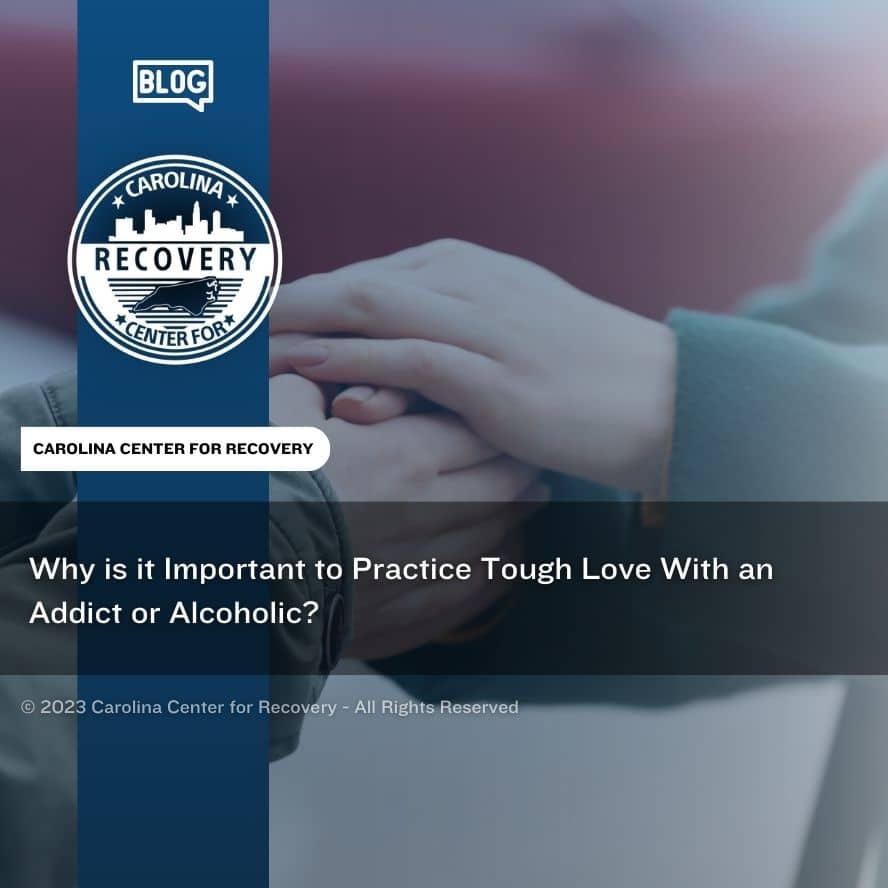Why is it Important to Practice Tough Love With an Addict or Alcoholic?

Medically Verified: 2/1/24
Medical Reviewer
Chief Editor

All of the information on this page has been reviewed and verified by a certified addiction professional.
Loving someone with drug and alcohol addiction can come with a lot of emotions. You may feel anxious, angry, sad, hopeless, or fed up–and these feelings can fluctuate each day as you watch them struggle with substance abuse.
Addiction can seem to transform people into something different. Steady, loving people may become erratic or aggressive. Reliable people can become unpredictable or untrustworthy. It can be devastating to see someone you care about make decisions that lead them down darker, more complex paths.
People with addicted loved ones often wonder how to support them or make them see the light and realize they need help. It can be confusing–do you give them what they’re asking for and keep them from hitting rock bottom, or should you let them experience the consequences of their addiction and hope they come to their senses?
The phrase “tough love” is often used to describe a way of handling an addicted loved one. The term “tough love” can mean different things to different people, but it often describes setting, maintaining, and enforcing boundaries.
In this article, we’ll explore what “tough love” really means and how it can help you navigate a complicated relationship with an addict or alcoholic. Reach out to the specialists at the Carolina Center for Recovery to learn more about helping your loved one get the help they need or to be connected to support during any stage of addiction recovery.
What is Tough Love?
Typically, the term “tough love” is used to describe a firm approach to dealing with others’ behaviors. Sometimes, tough love can come across as rigid or cold.
In 1968, author Bill Milliken introduced the expression in a book with the same name. He introduced the idea of “tough love” as an approach to parenting where parents allow their parents to experience negative emotions while learning.
Over the years, it has come to mean different things. In many cases, people use the term “tough love” to describe letting people experience the negative consequences of their actions instead of rushing to save them from discomfort.
People may choose to practice tough love with an addict or alcoholic in their life by refusing to cover up or prevent the consequences of their actions, allowing the addicted person to experience the harm caused by substance abuse.
Is Tough Love Effective?
Tough love doesn’t necessarily have to be cold. Instead, people can decide which boundaries to enforce, communicate them clearly, and then follow through.
Some healthy boundaries might include the following:
- Not allowing the person to bring drugs or alcohol into the home
- Refusing to give a person money for drugs or alcohol
- Preventing someone from driving while intoxicated by taking away the keys
- Refusing to make excuses for another person’s actions or shortcomings
In these examples, using tough love may result in consequences that may disrupt the addicted person’s life. For instance, if someone isn’t allowed to drive while intoxicated, they may miss work or a social event and have to deal with the consequences of this. Or, if someone continues to bring alcohol into the house after being told not to, they may have to find another place to live.
Using tough love can be challenging because it means actively allowing someone you love to face the consequences of their actions when you could easily swoop in and “rescue” them. However, if an addict or alcoholic never has to face the reality of their addiction, they will not have any incentive to change.
Can Tough Love Be Harmful?
Tough love is one approach to dealing with an addict or alcoholic’s behaviors. It’s essential to work with a trained therapist or addiction specialist when using tough love to avoid enabling or worsening the situation.
Sometimes, tough love may be effective after everything else has failed. People with addiction have better outcomes when they choose to attend treatment, so planning an intervention can be an effective way of helping someone recognize the need for treatment.
Empathy, love, and support are crucial when dealing with an addict or alcoholic. No one chooses an addiction, and people with drug and alcohol dependence often cannot simply stop using substances when they want to.
Using tough love can cause damage to your relationship with an addict or alcoholic if you misuse it. Talk with your healthcare provider, addiction counselor, or addiction treatment center staff to learn effective ways to communicate with your addicted loved one. If you decide to use tough love, seek guidance and support so that you can use it effectively.
Learn More Now
If you love someone who struggles with drug or alcohol addiction, you are not alone. The resources, treatment, and support you need are just a phone call away. Reach out to the Carolina Center for Recovery specialists now to learn how to effectively use tough love and other approaches to help your loved one get the help they need.

